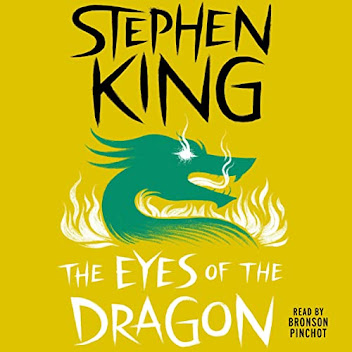Midnight Rising: John Brown and the Raid That Sparked the Civil War (audiobook) by Tony Horwitz
A compelling look into one of America's (misunderstood?) icons
Published in October 2011 by Macmillan Audio
Read by Daniel Oreskes
Duration: 11 hours, 9 minutes
John Brown is one of those well-known yet elusive figures in history. He is literally in all of the American history books, but most people know almost nothing about him except for a few headline snippets like "Bleeding Kansas" and "Harper's Ferry" and "Slave Revolt." More knowledgeable readers may remember he used a sword to kill pro-slavery settlers in Kansas and worked with several prominent anti-slavery figures before his raid into Harpers Ferry, including Frederick Douglass and Harriet Tubman and that his raid on the Federal armory at Harpers Ferry was an utter failure and undoubtedly proved that he was insane.
Or, was he? And, was the raid really a failure?
Tony Horwitz's Midnight Rising is an excellent biography of John Brown as well a well-rounded look at the politics of slavery in the United States in the 1840s and 1850s. I have studied the Civil War for years (and I must recommend Horwitz's Confederates in the Attic as well) and Brown always gets a cursory look (if any look at all) in most Civil War histories. If nothing else, Horwitz has shone a light on a most interesting life - the life of a man unwilling to bend on the issue of the inherent evil of slavery.
 |
| John Brown (1800-1859) |
Clearly Brown's attempt to spark a slave revolt totally failed. Most of his raiders were shot or executed. Brown's hurried trial was a farce (he had 6 different defense attorneys in 5 days of trial!), but Horwitz demonstrates that that time in prison awaiting trial, sentencing and execution allowed John Brown the legendary opponent of slavery to become John Brown the monster throughout the south or John Brown the martyr in some parts of the north. He became the focal point of public opinion. For example, here is a prophetic poem written in 1859 by Herman Melville called The Portent:
Hanging from the beam,
Slowly swaying (such the law),
Gaunt the shadow on your green,
Shenandoah!
The cut is on the crown
(Lo John Brown)
And the stabs shall heal no more.
Hidden in the cap
Is the anguish none can draw;
So your future veils its face,
Shenandoah!
But the streaming beard is shown
(Weird John Brown),
The meteor of the war.
Whether John Brown really intended to become "The meteor of the war" by allowing himself to be caught and put to death or if it just turned out that way...we will never know. Horwitz is not sure, either - he flirts with both possibilities. But, we can be certain that this event does not deserve the short shrift it often gets.
I was fascinated by the number of well-known personalities that ended up being involved with John Brown in one way or another. Brown knew Henry David Thoreau, Ralph Waldo Emerson, Frederick Douglass and Harriet Tubman. He tried to get Douglass and Tubman to participate in his raid. A number of famous personalities participated in the trial or the capture of John Brown, including Robert E. Lee, Thomas (soon to be) "Stonewall" Jackson, J.E.B. Stuart, John Wilkes Booth, and Edmund Ruffin (widely credited with having fired the first shot at Fort Sumter). Any man that is the nexus of so many interesting people is bound to have an interesting story and Horwitz tells Brown's story very well.
The audiobook is very well read by Daniel Oreskes whose deep, resonant voice adds a feeling of somberness and importance to this history. Oreskes actually developed different voices to read the various direct quotes in this history. Horwitz often lets the historical figures speak for themselves and this is enhanced by Oreskes.
On a lighter note, the audiobook begins and ends with a bit of music from the Battle Hymn of the Republic - here are some lyrics as a reminder:
- Mine eyes have seen the glory of the coming of the Lord:
- He is trampling out the vintage where the grapes of wrath are stored;
- He hath loosed the fateful lightning of His terrible swift sword:
- His truth is marching on.
- John Brown's body lies a-mouldering in the grave; (3X)
- His soul is marching on!
- (Chorus)
- Glory, glory, hallelujah! Glory, glory, hallelujah!
- Glory, glory, hallelujah! his soul's marching on!
- He's gone to be a soldier in the army of the Lord! (3X)
- His soul is marching on!
I rate this audiobook 5 stars out of 5.
Reviewed on January 21, 2012.
This audiobook can be found on Amazon.com here: Midnight Rising.











Comments
Post a Comment